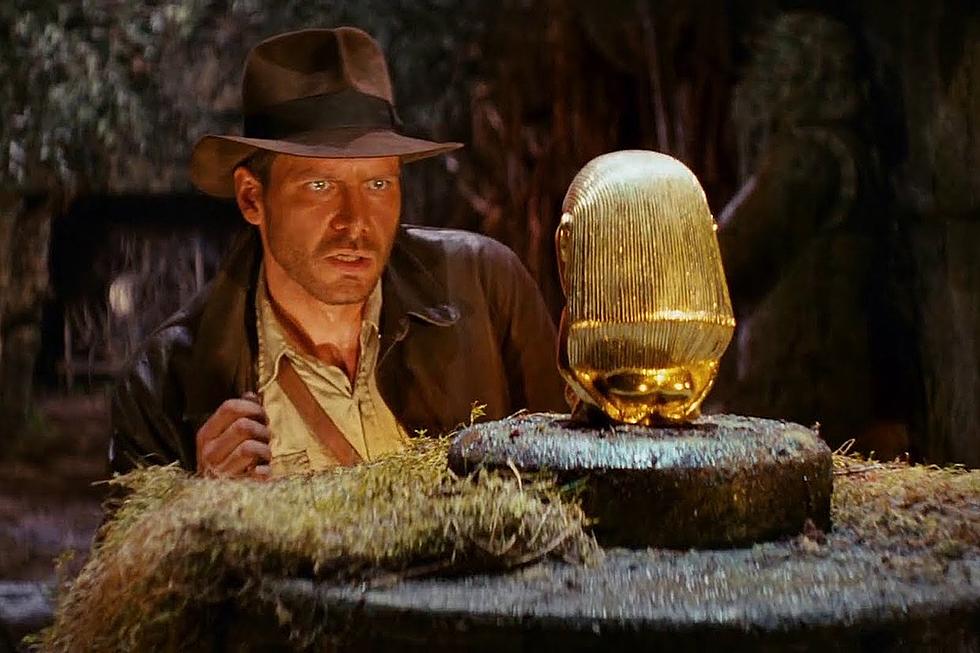
Steven Spielberg Says Netflix Movies Are TV, Shouldn’t Be Eligible for Oscars
The Netflix debate rages on, a year after that Cannes controversy that made the festival change its entry rules. Are movies on Netflix legit movies? Or are they something else? And should they be considered for awards? As his new movie deals with virtual reality and new ways of storytelling, Steven Spielberg has finally weighed in, and he is firmly in the Netflix Is TV camp.
In a new interview with ITV News, Spielberg first discussed whether he thought today’s virtual reality, itself a precursor of Ready Player One’s OASIS technology, is changing the game for movies. For Spielberg, it isn’t.
It’s not a medium for narrative storytelling. The director can’t get people, who are in the experience to pay enough attention. We’re always roaming and looking around at everything available to be seen. I don’t think VR will be competitive with the motion picture theater experience.
Another medium, similar to VR in its difference from the theatrical experience, is Netflix — and Amazon, and Hulu, and basically all the streaming services out there that have recently started to make their own films. On this subject, Spielberg was adamant: Netflix movies shouldn’t be considered real movies, since they’re seen primarily on TV.
A lot of studios today would rather just make branded, tentpole, guaranteed box office hits from their inventory of branded successful movies than take chances on smaller films. Those smaller films that studios used to make routinely are now going to Amazon, Hulu, and Netflix. Television is really thriving with quality and art. But it poses a clear and present danger to film goers.
But in fact, once you commit to a television format, you’re a TV movie. You certainly, if it’s a good show, deserve an Emmy, but not an Oscar. I don’t believe the films that are just given token qualifications in a couple of theaters for less than a week should qualify for the Academy Award nomination.
The mid-budget Hollywood movie is all but dead, except in the medium of streaming services, where it’s having a comeback we haven’t seen in decades. Now, studios are more concerned with the tentpoles that make them tons of money, and films that aren’t considered Events either have a protracted run in the theater, or none at all, instead sold to the likes of Netflix for people to watch at their leisure.
But here’s where I — and I never thought I’d say this — disagree with Steven Spielberg. The mid-budget movie has found a new home, yes, but should they be punished just because it’s impossible now to get most studios to take a chance on a movie that might not make them much money? As Spielberg says, the medium of storytelling onscreen is evolving, as it’s done since movies were invented. Just because a movie is only available to watch on your TV, or your laptop or phone, doesn’t mean it’s not something great.
And, now that I’m on my soapbox, I’d also like to mention that many movies made for or bought by streaming services deserve a theatrical run as well, not just one to qualify them for awards consideration. I was lucky enough to see Bong Joon-ho’s Okja in a theater twice, because I’m privileged to live in a city that allows me to do that, and I still think that that’s the absolute best way to see that movie and many other movies Netflix and its kind have released. On the other hand, people who don’t live in New York City but still have a Netflix account also have the opportunity to watch stuff that, normally, would only get a limited release in 10 or 20 major cities across the country. Relegating this stuff to “it’s just TV” misses the point: great films are more accessible now than they’ve ever been, and shutting them out of the awards conversation they deserve would only make the awards themselves less relevant.




